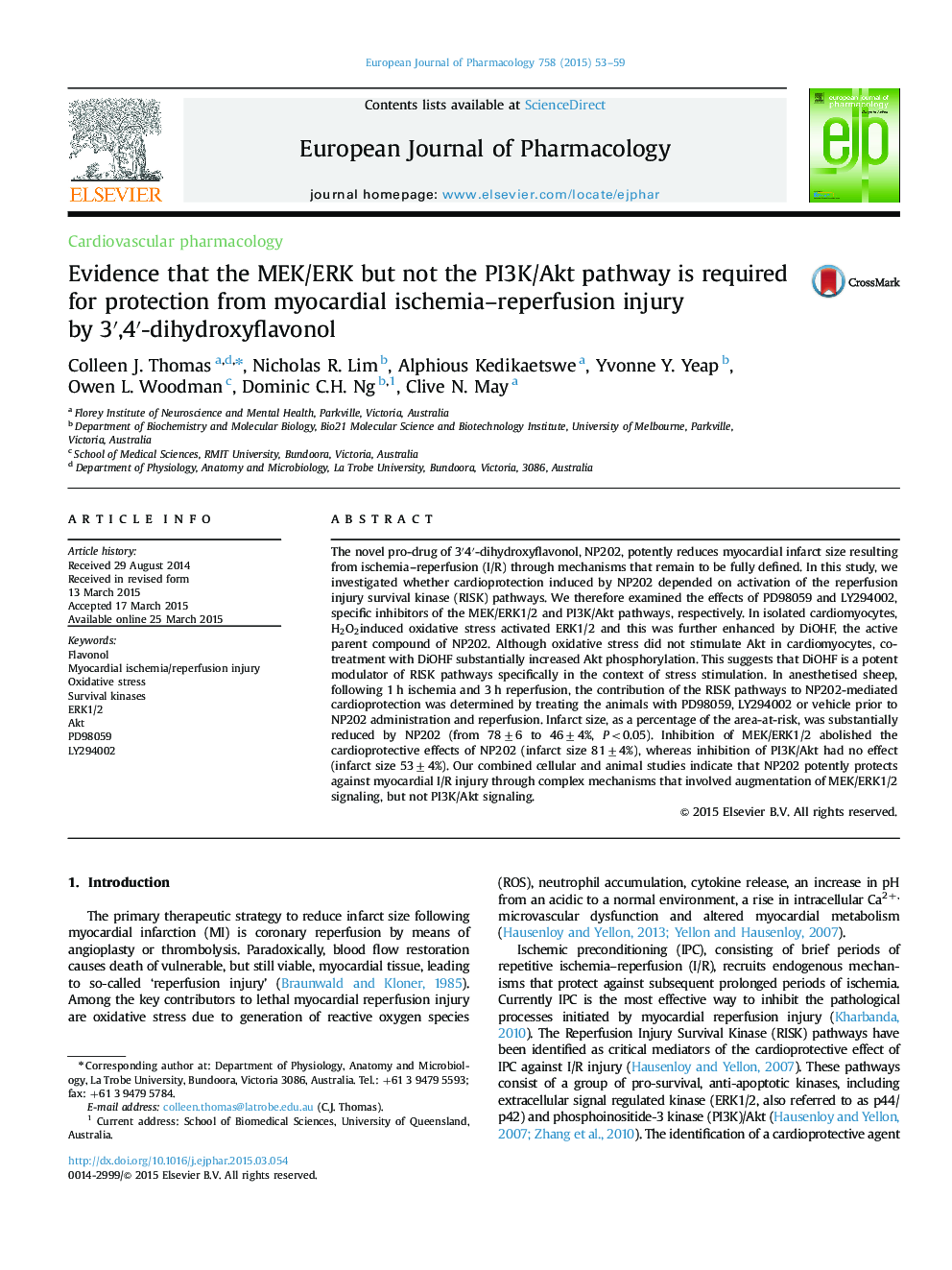| Article ID | Journal | Published Year | Pages | File Type |
|---|---|---|---|---|
| 5827363 | European Journal of Pharmacology | 2015 | 7 Pages |
Abstract
The novel pro-drug of 3â²4â²-dihydroxyflavonol, NP202, potently reduces myocardial infarct size resulting from ischemia-reperfusion (I/R) through mechanisms that remain to be fully defined. In this study, we investigated whether cardioprotection induced by NP202 depended on activation of the reperfusion injury survival kinase (RISK) pathways. We therefore examined the effects of PD98059 and LY294002, specific inhibitors of the MEK/ERK1/2 and PI3K/Akt pathways, respectively. In isolated cardiomyocytes, H2O2induced oxidative stress activated ERK1/2 and this was further enhanced by DiOHF, the active parent compound of NP202. Although oxidative stress did not stimulate Akt in cardiomyocytes, co-treatment with DiOHF substantially increased Akt phosphorylation. This suggests that DiOHF is a potent modulator of RISK pathways specifically in the context of stress stimulation. In anesthetised sheep, following 1 h ischemia and 3 h reperfusion, the contribution of the RISK pathways to NP202-mediated cardioprotection was determined by treating the animals with PD98059, LY294002 or vehicle prior to NP202 administration and reperfusion. Infarct size, as a percentage of the area-at-risk, was substantially reduced by NP202 (from 78±6 to 46±4%, P<0.05). Inhibition of MEK/ERK1/2 abolished the cardioprotective effects of NP202 (infarct size 81±4%), whereas inhibition of PI3K/Akt had no effect (infarct size 53±4%). Our combined cellular and animal studies indicate that NP202 potently protects against myocardial I/R injury through complex mechanisms that involved augmentation of MEK/ERK1/2 signaling, but not PI3K/Akt signaling.
Related Topics
Life Sciences
Neuroscience
Cellular and Molecular Neuroscience
Authors
Colleen J. Thomas, Nicholas R. Lim, Alphious Kedikaetswe, Yvonne Y. Yeap, Owen L. Woodman, Dominic C.H. Ng, Clive N. May,
